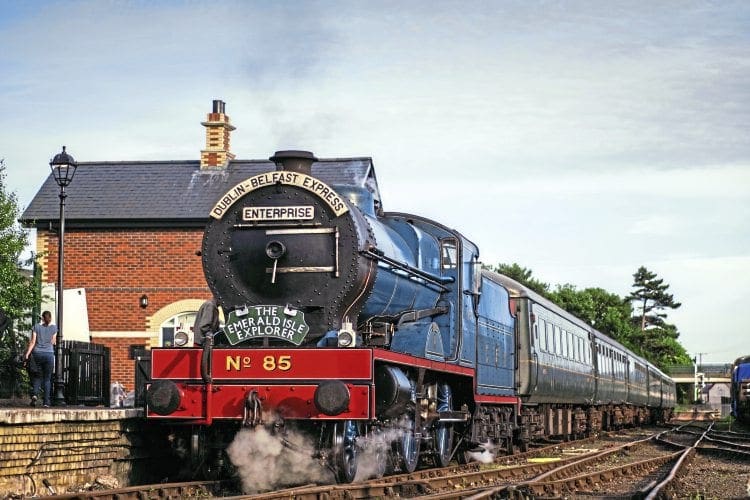The Railway Preservation Society of Ireland’s new multi-million pound Whitehead Railway Museum was formally opened amid great celebration on October 25.
It marks the beginning of a new era for the RPSI as the group develops its role as not only a steam custodian and operator but also an educator. Gary Boyd-Hope takes a look at what the new facility has to offer.
THE quaint Northern Ireland seaside town of Whitehead owes much to tourism. In fact, you can go as far as saying this County Antrim resort would simply not exist if it wasn’t for the Belfast & Northern Counties Railway (BNCR) and its visionary manager, Edward John Cotton.
Monthly Subscription: Enjoy more Railway Magazine reading each month with free delivery to you door, and access to over 100 years in the archive, all for just £5.35 per month.
Click here to subscribe & save
Cotton had begun his railway career with the Great Western Railway in 1845, later moving to the North Eastern, before heading across the Irish Sea in 1853 to take up the post of manager with the Waterford & Kilkenny Railway. He was just 24.

Four years later he accepted the position of traffic manager with the Belfast & Ballymena Railway; it was later renamed the BNCR in May 1860.
Under Cotton’s reign the BNCR underwent a period of huge expansion, acquiring eight other railway companies over the next 40 years. He was quick to recognise the potential of tourism in the north of Ireland, launching the first Larne to Stranraer steamer service in 1862 following the construction of the Carrickfergus & Larne Railway, which was operated and later absorbed by the BNCR.
The steamer venture ultimately failed as a BNCR initiative. However, it was successfully relaunched 10 years later under private ownership, but under Cotton’s leadership.
The running of cheap excursion trains from Belfast was another idea promoted by Cotton. As a result the BNCR opened up the picturesque valley of Glenariff to city dwellers, promoted the health benefits of the resort town of Portrush, and set about creating a new destination at the mouth of Belfast Lough – Whitehead.
Situated about 15 miles from the city itself, Whitehead was just a small settlement when the BNCR started encouraging people to build houses there to a plan approved by the railway. The BNCR developed the town for day-trippers, building a promenade, a bandstand, and even creating a beach using sand brought in by train from Portrush.
Through the railway’s promotion Whitehead grew in both size and popularity, with the railway’s civil engineer Berkeley Deane Wise even creating the dramatic Gobbins cliff path at the turn of the 20th century.
The original Whitehead station opened in 1863, but was relocated to the northern side of Whitehead Tunnel in 1877. This resulted in a marked increase in excursion traffic, to the degree that the BNCR’s successor, the Midland Railway Northern Counties Committee (NCC), built another station in 1907.
The new Whitehead Excursion station lay at the end of a short spur off the main line, and was provided with a loco shed, turntable, water tower, stables and sidings to accommodate and service the tourist trains. The stables were home to five horses and three ‘jaunting cars’ that would convey visitors from the station to the Gobbins path.
Read more in the December issue of The RM – on sale now!




